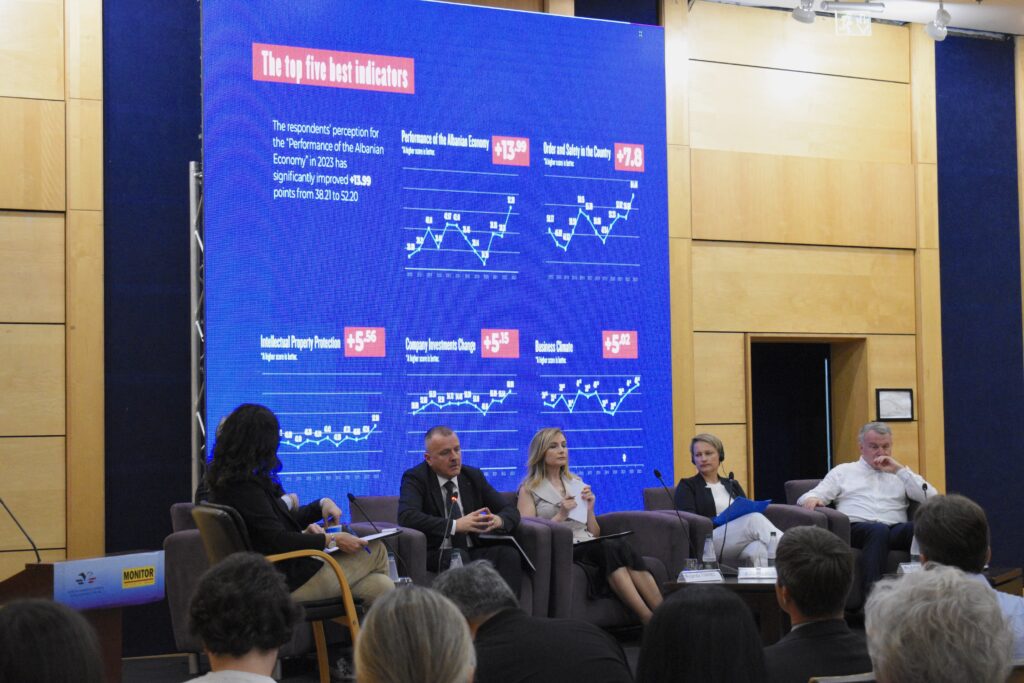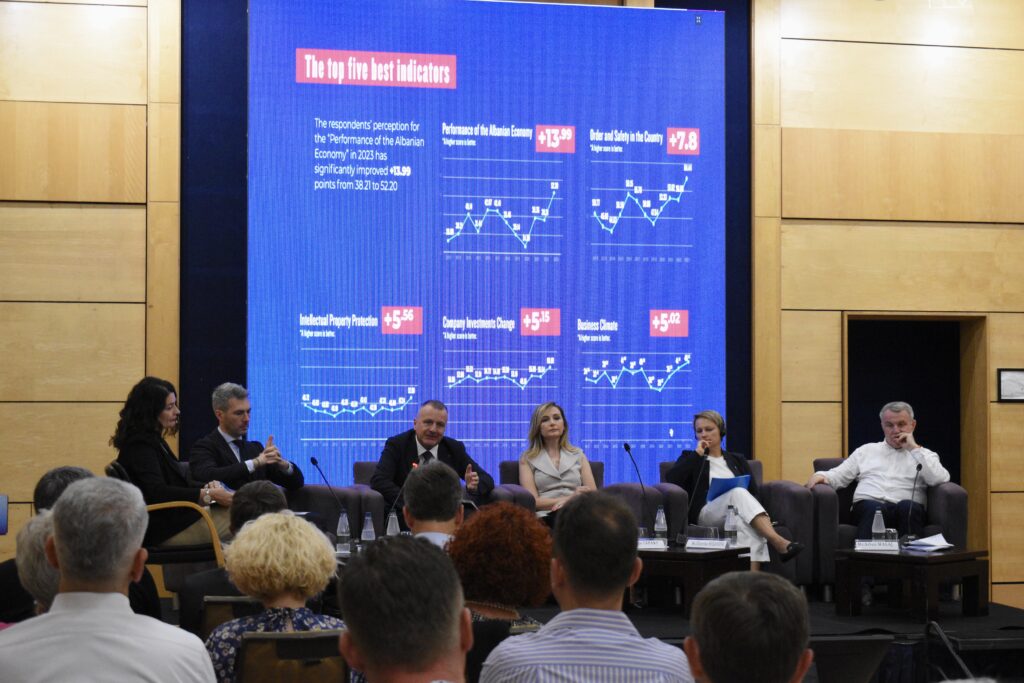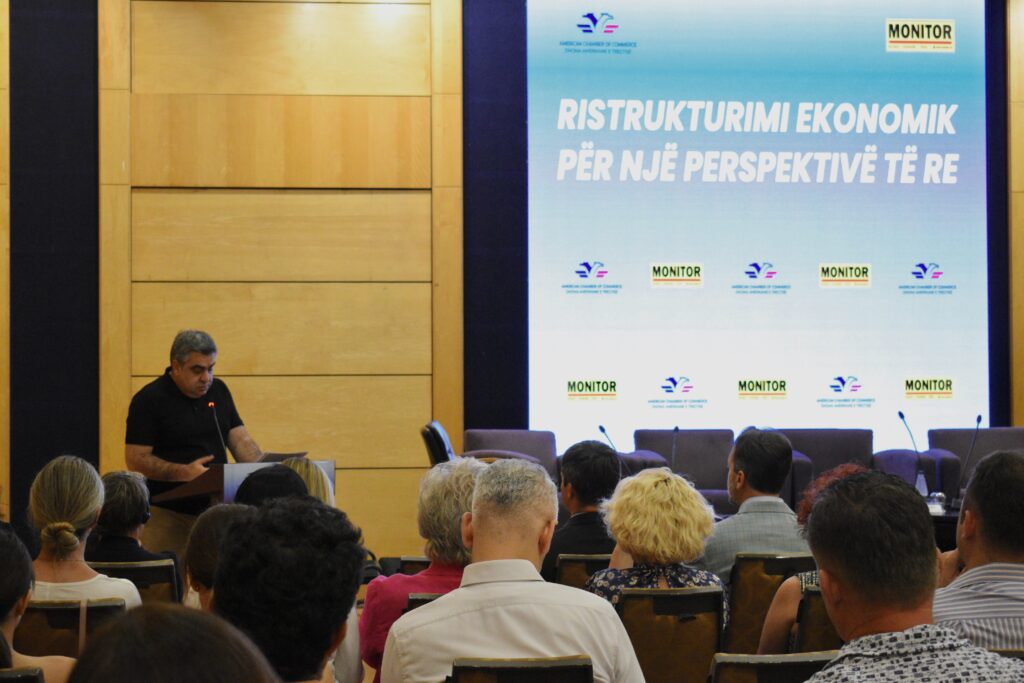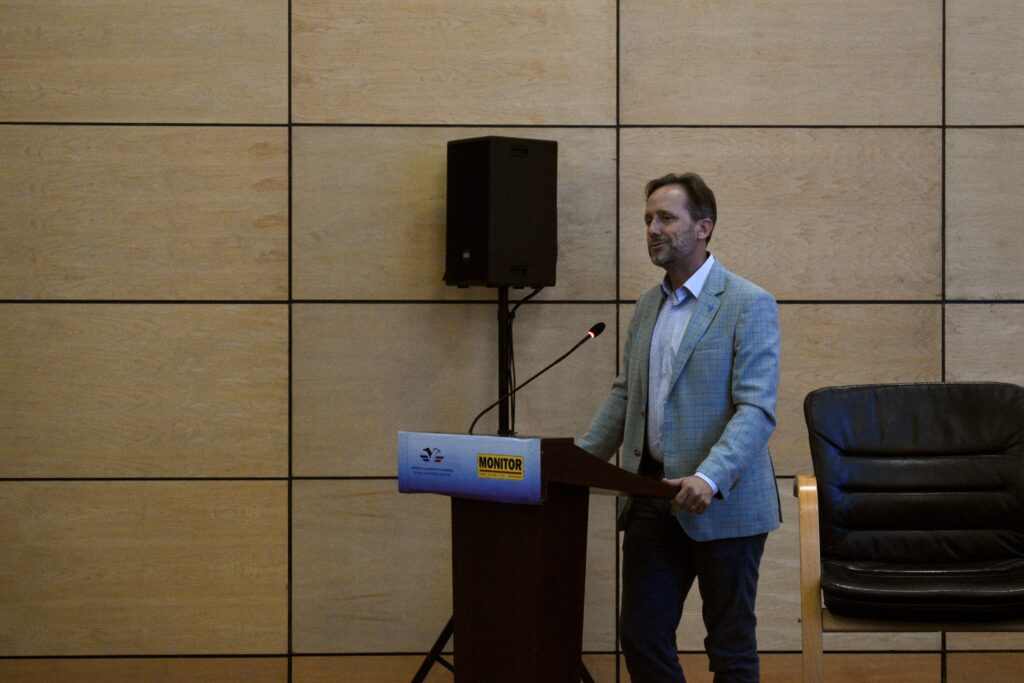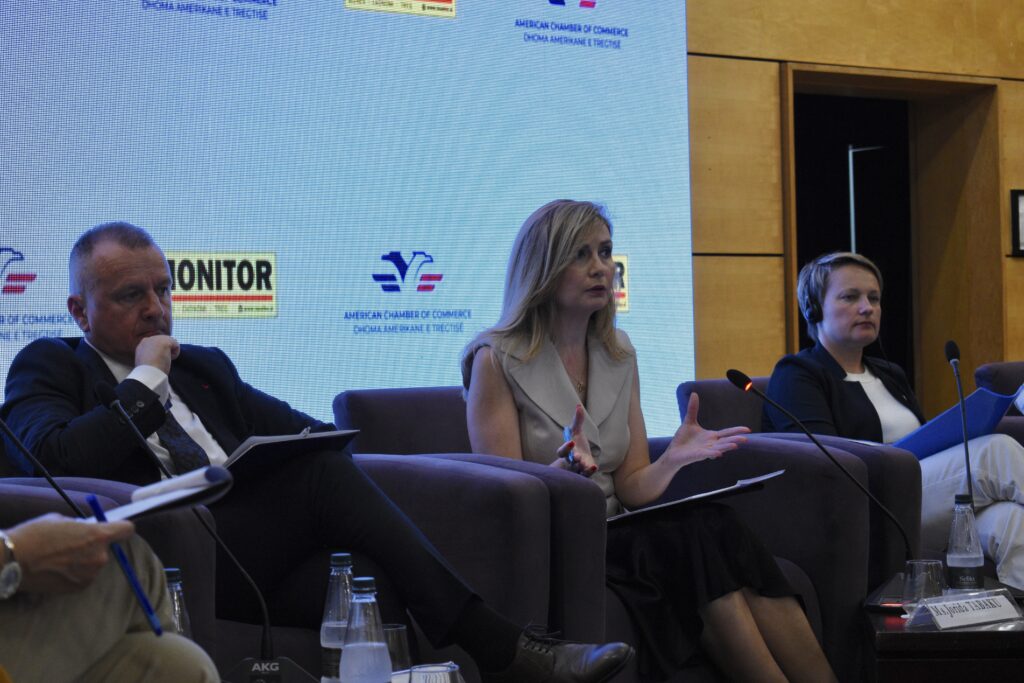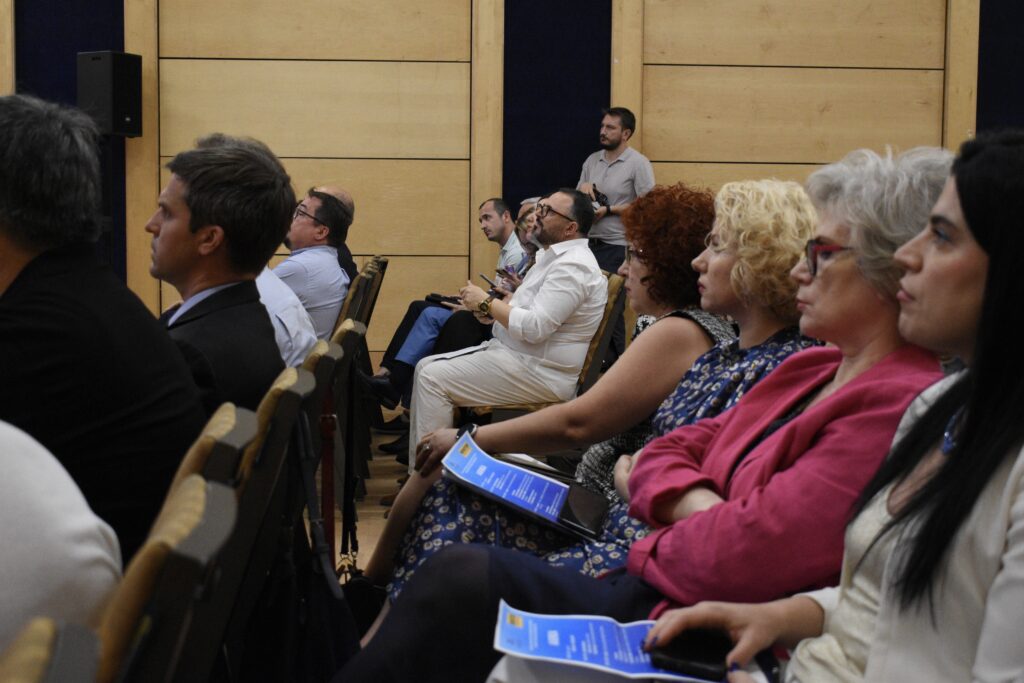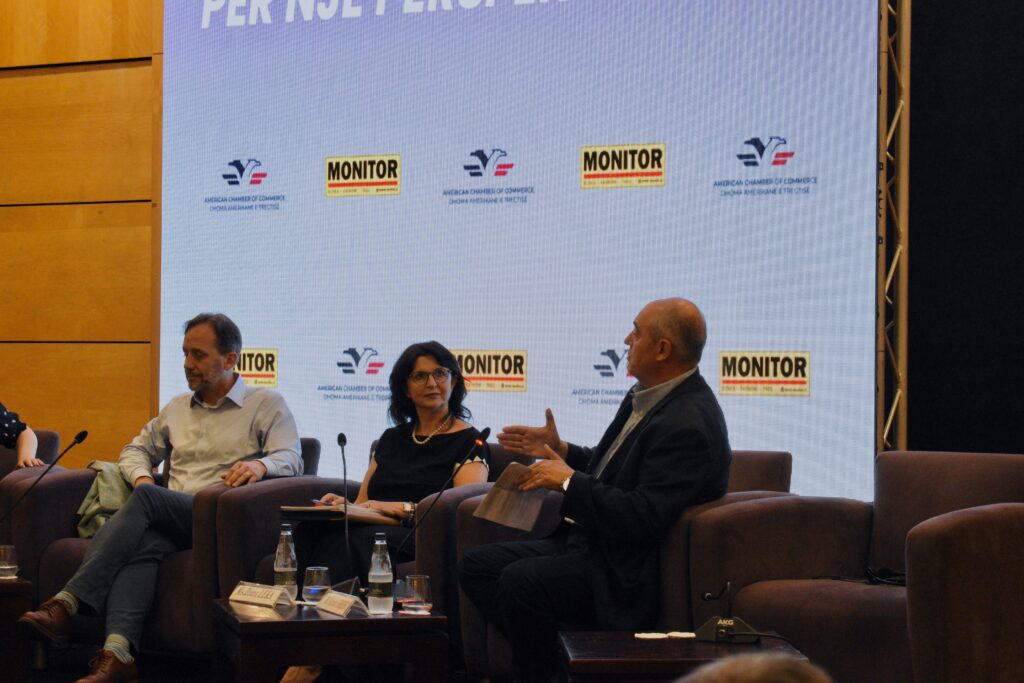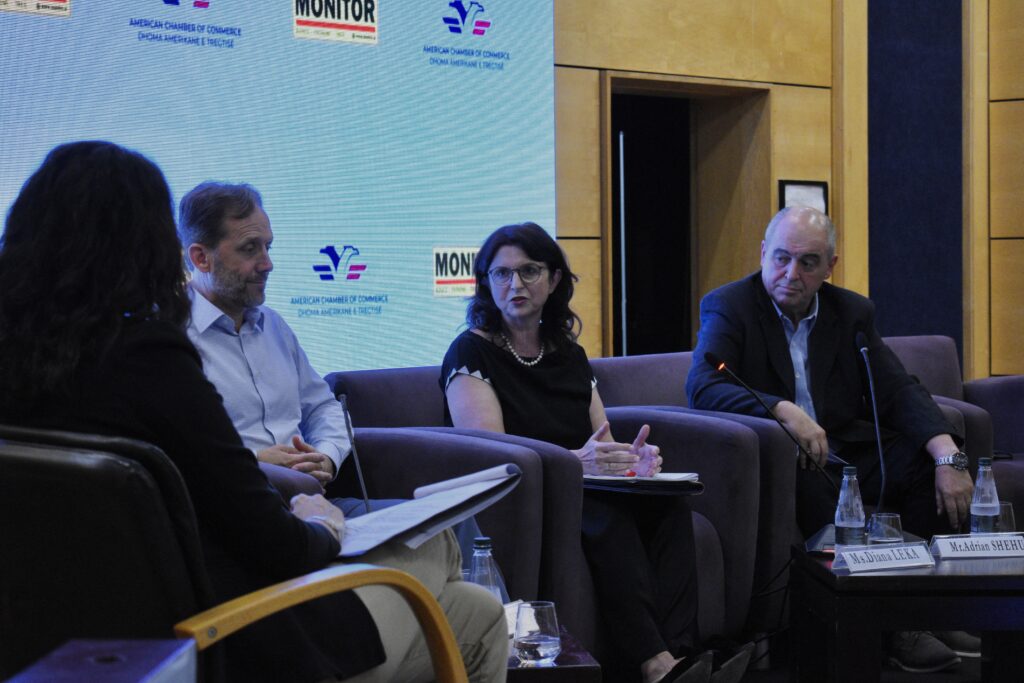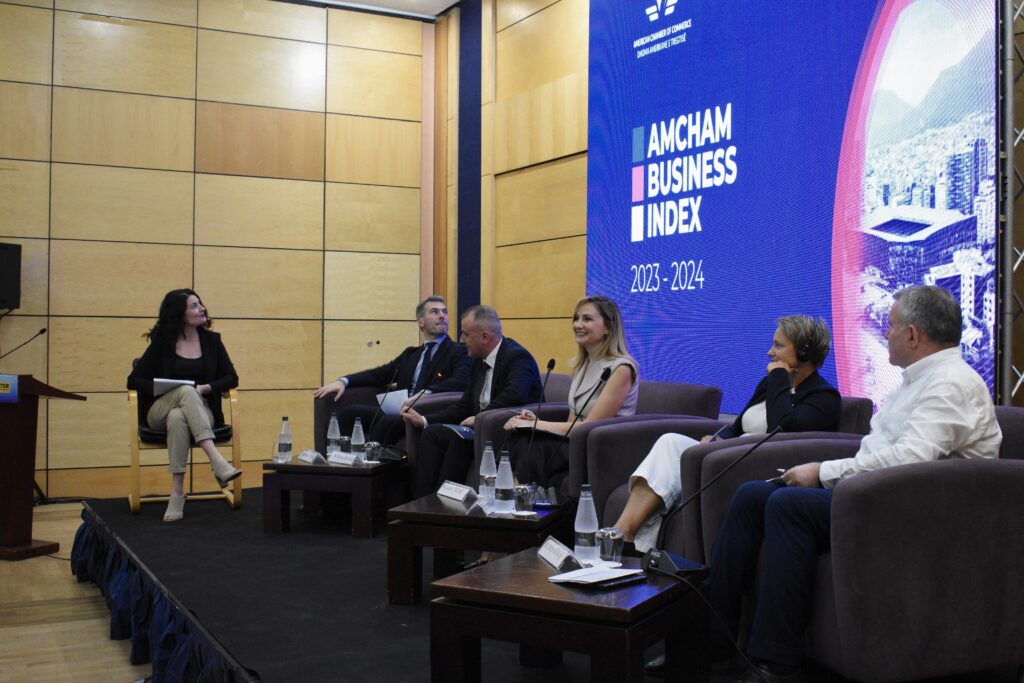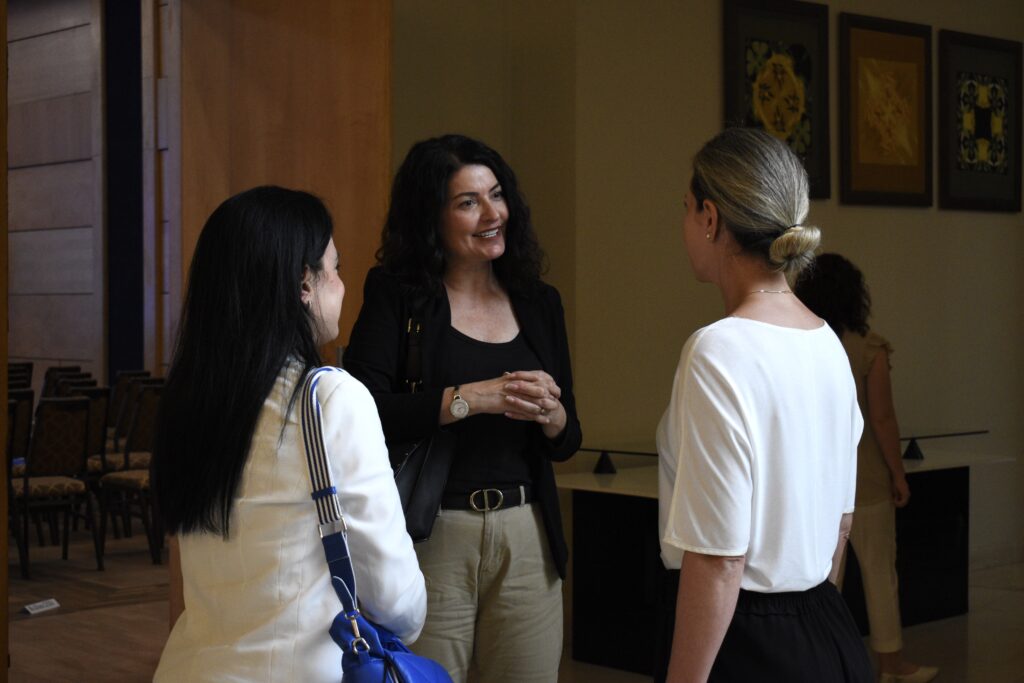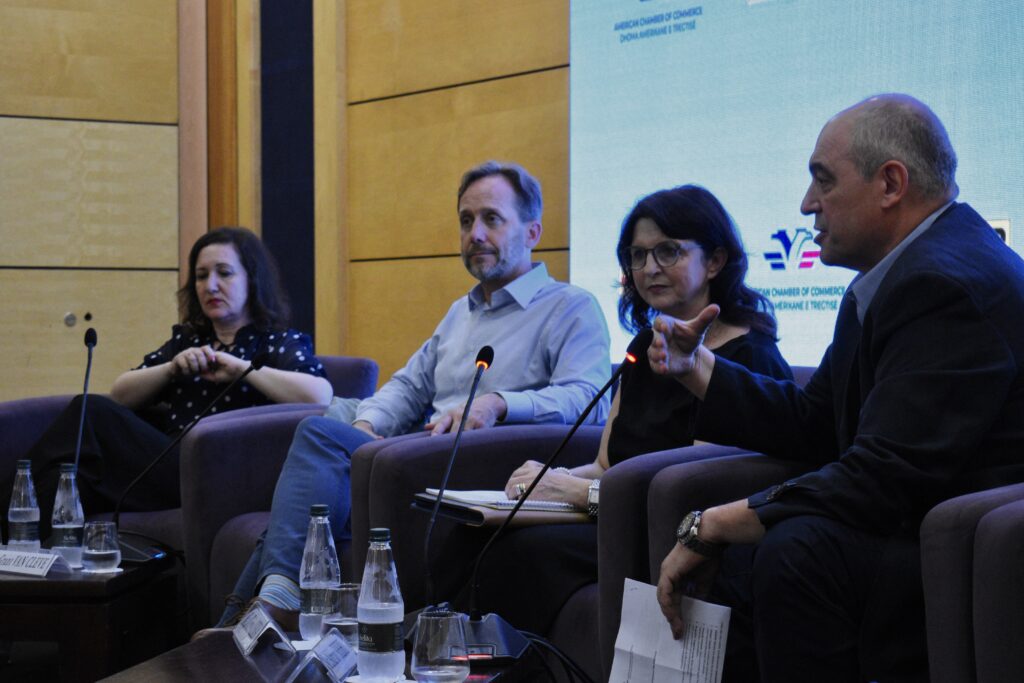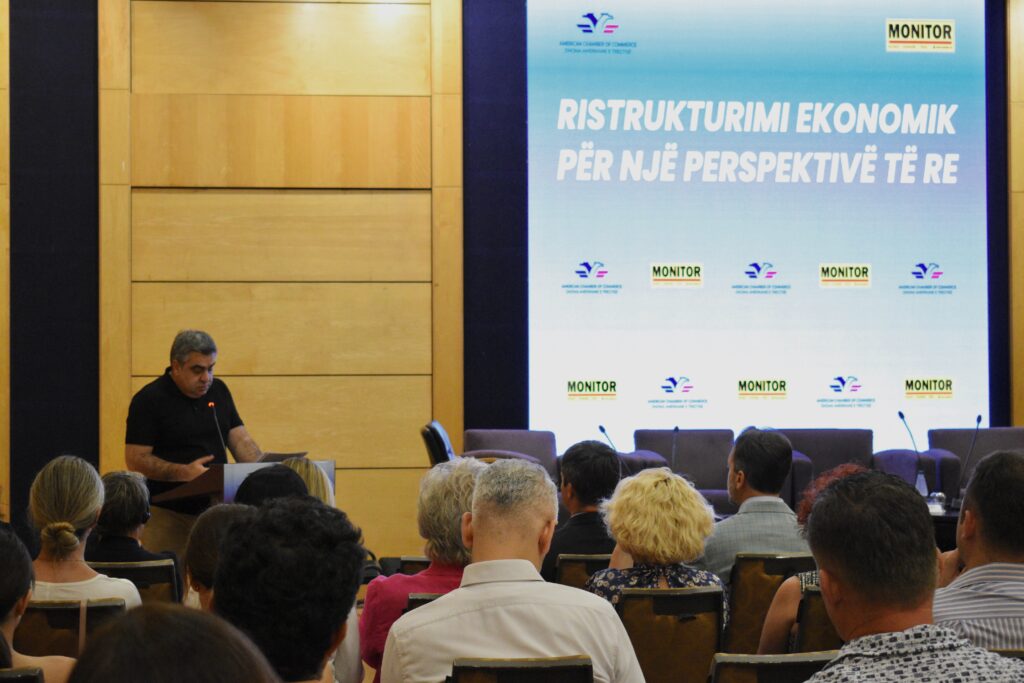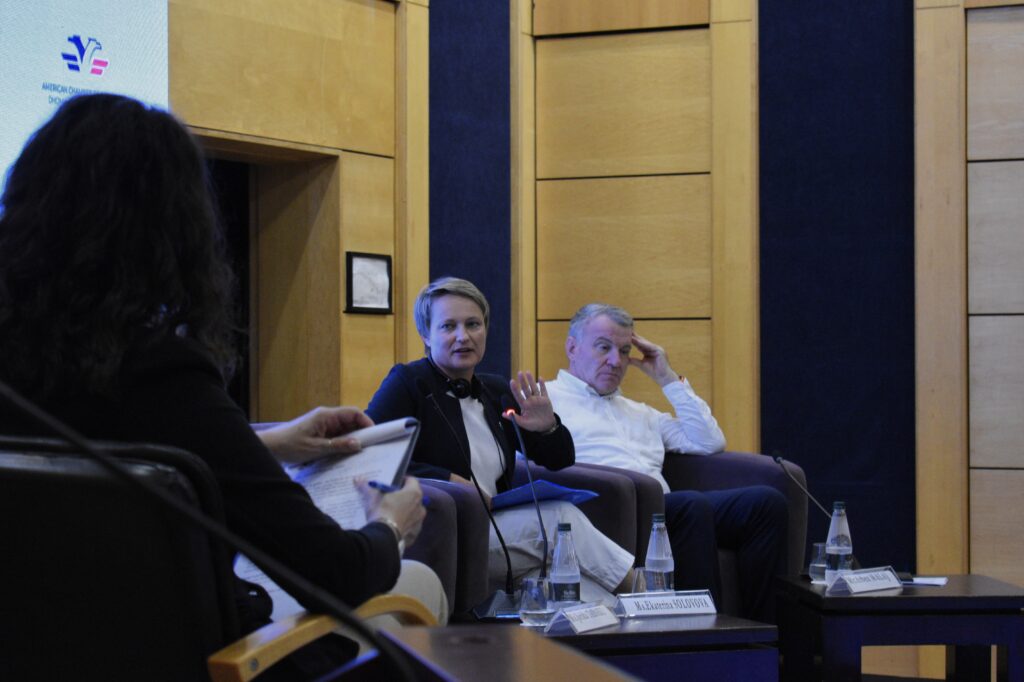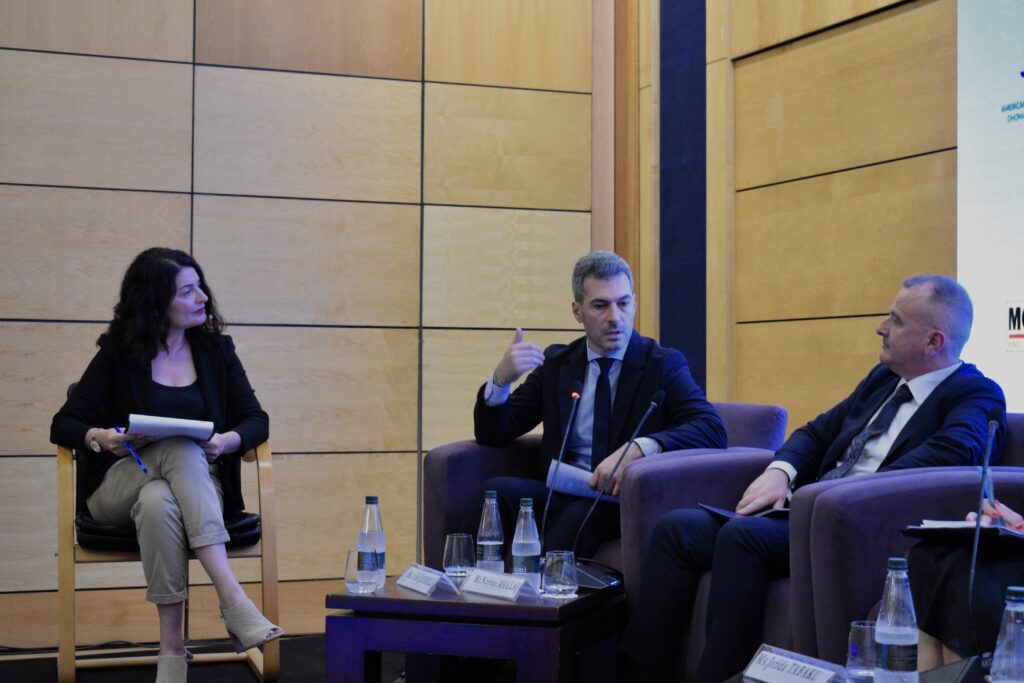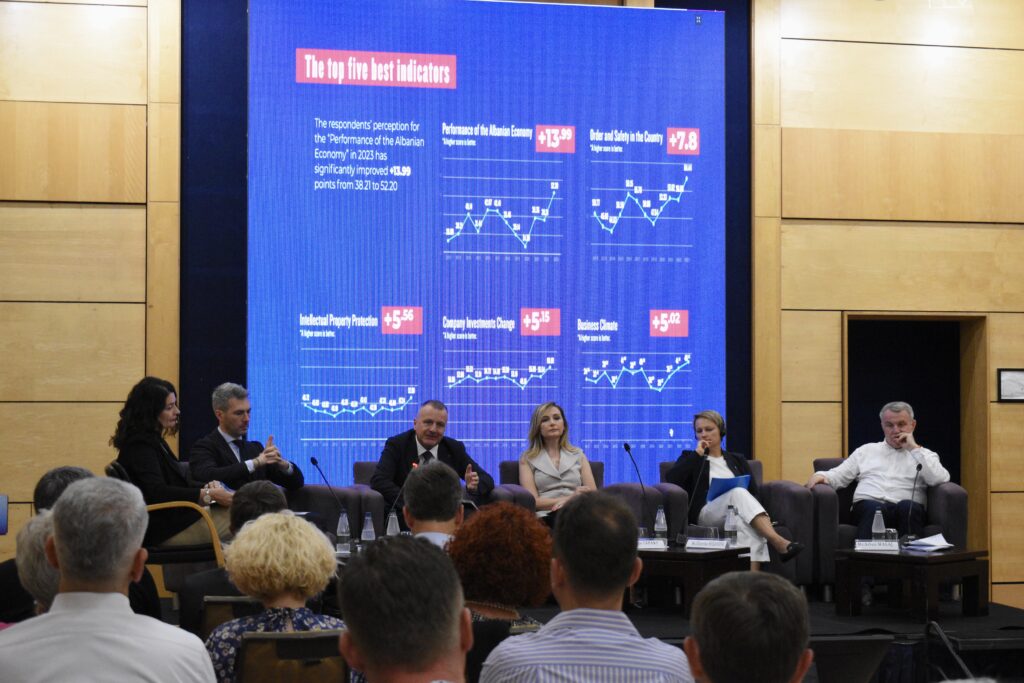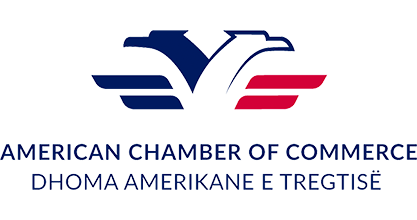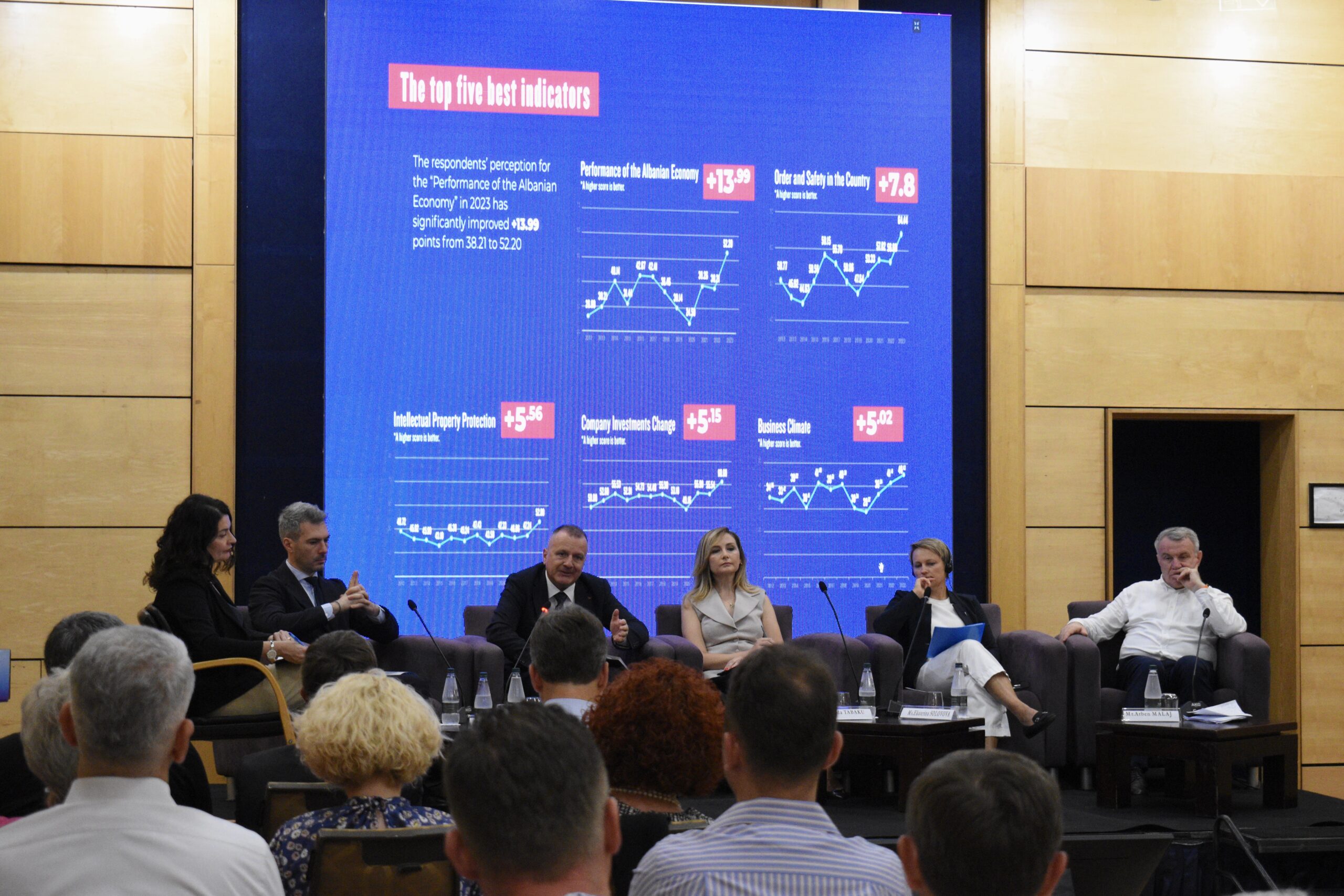The conference “Economic Restructuring for a New Perspective,” jointly organized by AmCham and Monitor Magazine, served as a platform for exchanging ideas on how best to navigate the Albanian economy. The event aimed to provide up-to-date insights through reports from AmCham and Monitor on critical issues impacting the economic climate, alongside innovative proposals for a fresh outlook.
Discussions centered around the Business Index and its implications, focusing on how businesses identify and prioritize issues affecting the economic environment. These priorities sparked discussions among government representatives, Parliament, international organizations, and economic analysts, each offering unique perspectives on Albania’s economic landscape.
Grant Van Cleve, President of AmCham Albania, highlighted, “While we have seen improvements in the Index, we are still below the 50-point threshold. Concerns such as workforce strength, monopolistic practices, and informality require attention.” He underscored AmCham’s role in diagnosing phenomena and proposing solutions through their committees and expertise.
Minister of Economy, Culture, and Innovation Blendi Gonxhja noted, “Despite progress shown in the Index, challenges such as workforce shortages, suboptimal infrastructure, corruption, and bureaucratic hurdles remain at the forefront of our agenda.” He also highlighted positive developments in trade relations, exceeding $100 million with a favorable balance for Albania, reflecting the country’s appeal to foreign investors. “Albania’s economy shows strong growth in the region. However, we acknowledge businesses’ concerns,” emphasized Mr. Gonxhja.
The conference, moderated by Arlinda Çausholli, featured sessions addressing issues such as informality, skilled workforce availability, monopolies, and tax levels, which continue to limit growth opportunities and adversely impact businesses.
In the first session, Deputy Minister of Economy Sokol Duma, Parliamentary Integration Committee Chair Jorida Tabaku, EBRD Representative Ekaterina Solovova, and Academic Arben Malaj engaged in discussions prompted by the AmCham Business Index presented by Executive Director Neritan Mullaj. “For the first time in 11 years, we have achieved a high of 47.57 points, signaling a positive trend. However, we remain in the ‘warm zone’ as the index remains below 50 points,” Mullaj explained.
Arben Malaj, economic expert and former Finance Minister, commented, “A score below 50 points indicates a limiting factor that hampers economic development. Albania’s primary challenges have been property rights, judiciary issues, and corruption.”
Ms. Jorida Tabaku, a parliamentarian, expressed her views on the labor force indicator and its economic impact, noting, “Business concerns over the past decade have persisted unchanged, indicating systemic issues. The primary concern revolves around the labor force problem, linked to the erosion of the middle class.”
Ms. Ekaterina Solovova, representing the European Bank for Reconstruction and Development (EBRD), contributed constructively to the discussion by stating, “EBRD employs financial mechanisms to support the transition towards a sustainable economy, driven by policies that foster innovation.”
The conversation continued into the second session, where Ms. Ornela Liperi, Editor-in-Chief of Monitor Magazine, presented survey findings on informality, sparking a debate among experts on its economic implications and policy solutions. Approximately 61% of respondents reported an increase in economic informality over the past year, while 29% saw no change, and only 9% noted a decrease.
Panel participants included Mr. Grant Van Cleve, President of AmCham, Ms. Diana Leka (Angoni) from the Investment Council, and Mr. Adrian Shehu, Chair of the Investment Committee at AmCham.
AmCham Business Index Insights for 2023
In 2023, the AmCham Business Index marked another significant rise of 4.16 points, reaching its highest level in the past 11 years at 47.57 out of 100 points. Despite this positive trend, it remains in the “hot zone” below the critical 50% threshold, represented by the red zone.
The Business Index evaluates business perceptions across 27 macroeconomic indicators. Each year, certain indicators show promising upward trends. This year, AmCham members notably reported a substantial improvement of +13.99 points in their assessment of Albania’s economic performance. This improvement is underscored by a +5.02-point increase in the business climate.
However, concerns were raised through assessments on topics such as “Financial security in business development,” which saw a slight decrease of -0.02 points, and “Demand for goods and services for export,” which experienced a decline of -3.29 points. Additionally, after two years of positive ratings in institutional relations, “Relations with Taxation” experienced a slight decline of -0.31 points.
The Business Index highlighted five critical issues remaining in the “hot zone”: the challenge of finding qualified workforce, issues related to monopolies and uneven competition, informal economic practices, government bureaucracy, and tax levels. The indicator for “Finding qualified workforce” showed a modest improvement this year, with an increase of two points. However, 74% of respondents still find it difficult to recruit suitable employees. Meanwhile, “Informality” received a low rating of only 35.71 points out of 100 possible.
